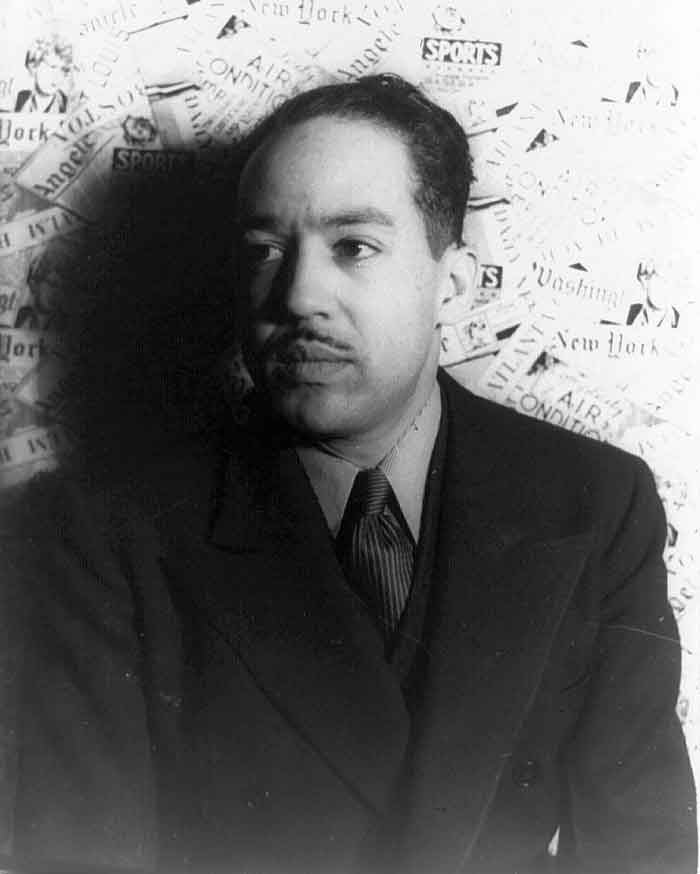
The U.S. celebrates February as Black History Month and one of the prominent prospects of African-American history is Jazz Poetry; poetry that mirrors jazz-like rhythm or feels of improvisation, i.e. the jazz milieu. Jazz poetry was initially conceived in the 1920s as a voice of acceptance, racial pride and expression of individualism. The 1950s oversaw the focus shift towards spontaneity, freedom of expression, while in the 1960s the idea of jazz poetry as a source of black pride was further propagated.
Langston Hughes, a hero of the black race in every sense, is the original jazz poet; a literary prodigy and one of the primary driving forces of African-American literature. He grew through phases, seeping into society as a foreperson of the Harlem Renaissance in the 1920s, an activist poet in the 1930s and a public figure in the 1960s.
I stay cool and dig all jive,
That’s the way I stay alive.
My motto, as I live and learn,
is
Dig and be dug
In return.
~ James Mercer Langston Hughes (February 1, 1901-May 22, 1967)
Langston’s parents had divorced just after his birth. His father, seeking escape from the enduring racism in the U.S., travelled to Mexico. He grew up with his maternal grandmother, Mary. She instilled a lasting sense of racial pride and thus imbued a sense of duty into her grandson from an early age to help his race. Thus, Langston’s works identified and glorified the neglected black people.
Following Mary’s death, Langston went to live with his father for a short period in Mexico. The father-son duo did not share an amicable relationship. His father’s hatred towards his race appalled Langston. This further helped mould and strengthen his love for his people.
Some academics and historians believe Langston was homosexual, and he remained closeted. They believe that he included coded messages for his alleged secret black male lover in several of his poems. This leads to arguments relating to the general empathy, love and respect expressed in his works towards his fellow black men.
I, too, sing America.
I am the darker brother.
They send me to eat in the kitchen
When company comes,
But I laugh,
And eat well,
And grow strong.
Tomorrow,
I’ll be at the table
When company comes.
Nobody’ll dare
Say to me,
“Eat in the kitchen,”
Then.
Besides,
They’ll see how beautiful I am
And be ashamed—
I, too, am America.
~I, Too, Langston Hughes (Weary Blues, 1926)
One of the most promising of the young Negro poets said to me once, “I want to be a poet-not a Negro poet,” meaning, I believe, “I want to write like a white poet”; meaning subconsciously, “I would like to be a white poet”; meaning behind that, “I would like to be white.” And I was sorry the young man said that, for no great poet has ever been afraid of being himself. And I doubted then that, with his desire to run away spiritually from his race, this boy would ever be a great poet. But this is the mountain standing in the way of any true Negro art in America-this urge within the race toward whiteness, the desire to pour racial individuality into the mold of American standardization, and to be as little Negro and as much American as possible.
The Negro Artist and the Racial Mountain
Langston Hughes, The Nation, 23 June 1926
The 1920s saw the Harlem Renaissance blossom into a full-grown radical movement towards the development of African-American culture. Langston Hughes was a huge name during this period. He wanted to use black vernacular speech in his poems to become closer to the urban folk, to announce the beauty of the black race and the need for acceptance and equality with the white population. The blues music genre had its roots deep into African vernacular, and so Langston used it poetically. He started creating poems where he used blues stanzas or lyrics. Later on, he started collaborated works with musicians to create jazz poetry.
As a pioneer, he inspired a radical racial consciousness and cultural nationalism amongst the black Americans in the presence of European colonialism and racial distinctions. His words expressed lyric beauty and music. He instituted a sense of pride amongst the African folk unified under black folk culture and black aesthetics. He urged artists to express their true selves regardless of the superficial standards set up by the white folk.
Today, the first day of February marks his 120th birth anniversary and the words still echo:
Here on the edge of hell
Stands Harlem—
Remembering the old lies,
The old kicks in the back,
The old “Be patient”
They told us before.
Sure, we remember.
Now when the man at the corner store
Says sugar’s gone up another two cents,
And bread one,
And there’s a new tax on cigarettes—
We remember the job we never had,
Never could get,
And can’t have now
Because we’re colored.
So we stand here
On the edge of hell
in Harlem
And look out on the world
And wonder
What we’re gonna do
In the face of what
We remember.
~Harlem, Langston Hughes.
Kasturi is an experienced blogger working in the field of Science & Lifestyle. She often writes on multiple blogging websites and features on her website, “Colourful In Grey”. She is a mechanical engineer by profession and a passionate reader and researcher. She can be contacted at [email protected] or [email protected]
IF YOU LIKED THE ARTICLE SUPPORT PEOPLE’S JOURNALISM














































